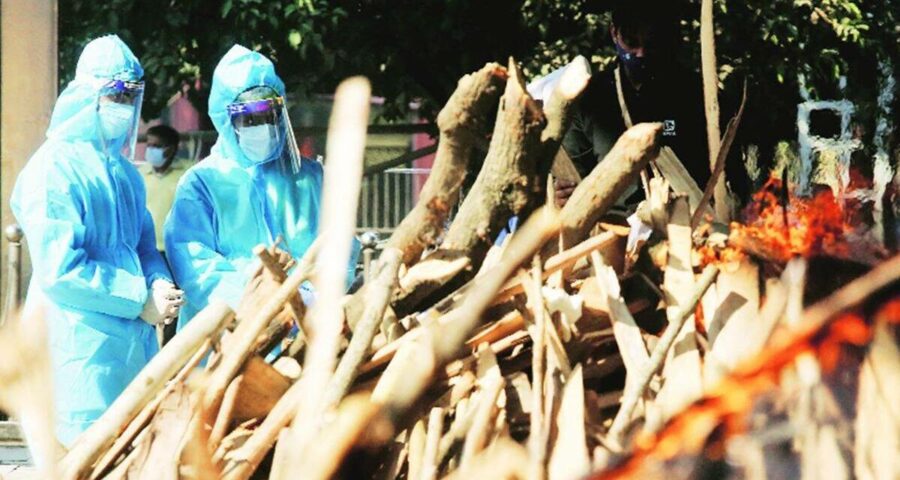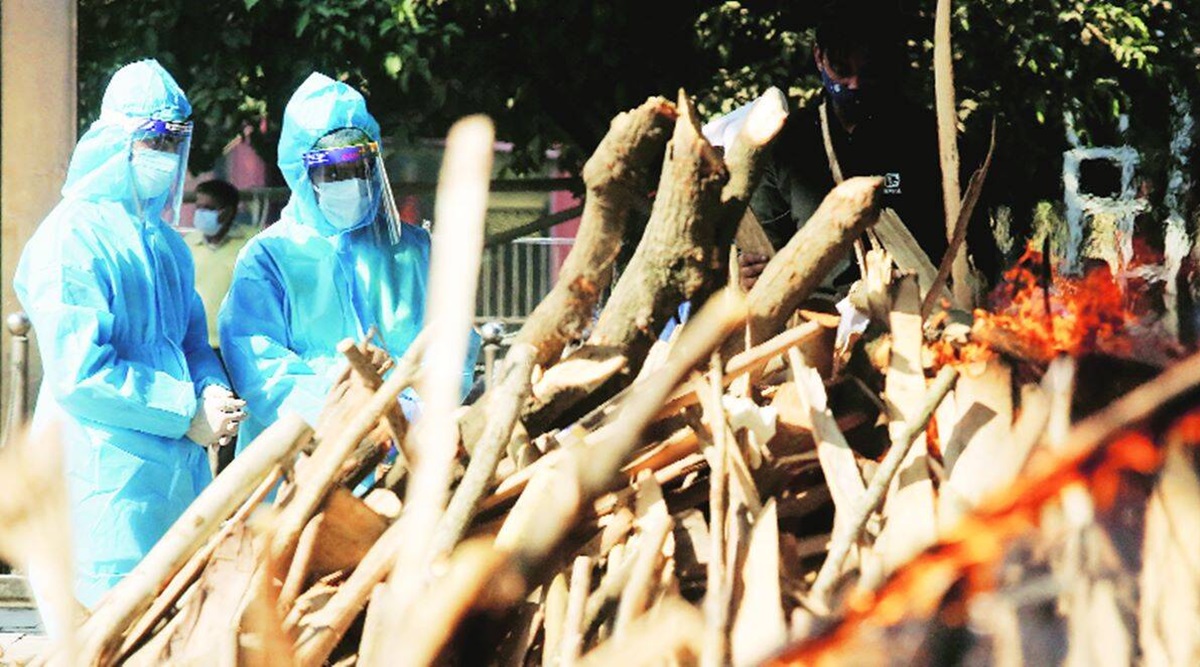Current moment in pandemic points to systematic undermining of countervailing institutions, and to people's complicity in cheering an uncaring and incompetent state.
With outrage, fear and grief, we witness burning pyres on pavements and mass graves of many whose lives a more caring and efficient government could have saved. Images haunt us of desperate families driving from hospital to hospital in vain search of beds as their loved ones die only because the state did not care or prepare.
Even after over a year of the pandemic, we find the government criminally unprepared with elementary protections like sufficient hospital beds with oxygen and ventilators. The interests of private profit weigh conspicuously more with the government than the public good even in the procurement of vaccines and medical oxygen and the regulation of private health systems. The Indian republic is today profoundly enfeebled.
In the turmoil and chaos in the second wave of Covid-19, we observe the perilous consequences of the systematic attacks of the executive to weaken and ultimately decimate each countervailing centre of power. A democracy is built on the idea of a multiplicity of assertions that would prevent the runaway hubris, callousness, incompetence and corruption of the elected executive. These alternate centres of power include the political opposition, higher judiciary, higher civil service, media, university, trade unions and other collectives of working people, and peaceful resistance of the people themselves. These are the oxygen of any democracy.
In India today, we find that these institutions of countervailing power to the executive, spaces for peaceful disagreement with power, its accountability, and above all its collective moral compass, each have been visibly decimated. This did not happen overnight. In the seven years of the present regime, people who felt privileged by the new equations of power — the growing ranks of radicalised Hindus, big capital and the middle-classes — condoned, even celebrated, the destruction of these other power centres, and fuelled the politics of hate and inequality.
We were unmoved when a Muslim boy was thrashed for entering a temple because he was thirsty. We saw an alarming rise of instances of lynching and hate attacks, targeting mostly Muslims and Dalits, the attacks often videotaped by the perpetrators who were confident that they would not be punished. We remained silent as a climate of hate was systematically built by the hate speech of senior members of the ruling party including cabinet ministers, chief ministers and elected representatives. This targeted mainly India’s Muslims, and left-liberal voices that stood in public defence of the rights of minorities.
History tells us that the majority in a democracy can turn dangerously majoritarian and ultimately fascistic if institutions of democracy do not hold accountable the executive and actively defend the rights of minorities. In India the political opposition has been increasingly timid in fighting authoritarianism and hate politics. Large sections of the media, civil services, academia, and ultimately the middle classes have celebrated executive authoritarianism and the decimation of rights of minorities and the poor. The Supreme Court in recent years has disappointed with its inaction on petitions to curb excesses of executive power, and the abridging of minority rights.
Many Indians did rise in resistance during the last two winters. When the government introduced changes in India’s citizenship law that for the first time created a legal hierarchy of rights to citizenship based on religious identity, discriminating against Muslims, students rose in peaceful protest. In even larger numbers, Muslim women in low-income settlements around India took leadership in the frontlines, fighting hate with an alternate discourse of solidarity and love, holding aloft the national flag, the national anthem and the constitution as the icons of the humanist and inclusive pluralism they sought to defend.
Yet the executive crushed the resistance by charging young people and seniors who supported the protests with some of the gravest crimes in the statute books, of criminal conspiracy for insurrection, terror, hate and sedition. We watched impassively as many young people were jailed indefinitely on trumped-up charges, and the spectre of similar incarceration still stands over the heads of many senior academics and activists. The same strategy was adopted to imprison indefinitely activists, lawyers, singers, poets and an ageing priest in the Bhima Koregaon case, alleging their support to Maoist insurrection. When confronted with the largest and most sustained peaceful protest, by farmers who fear that new laws will throw them at the mercy of big capital, the state has fallen back on this same playlist, cheered by its radicalised and privileged supporters.
A democracy is not given as a gift. It is constantly claimed, reclaimed, and nourished by the people. If today we outrage as we and our loved ones are uncertain if we will even access a hospital bed, oxygen or vaccines, we need to recognise that these are the wages of an unaccountable executive bereft of both competence and compassion. But we need to acknowledge also our own complicity in cheering and empowering an uncaring and incompetent state. We consented to a starved public health system, assured that we would find escape in private health care, indifferent that millions of the poor would die. Today we find that the failure of the public health system is threatening even the privileged.
Why today, then, our bewilderment, our outrage and our grief at where our elected autocrats have brought us? This is the India we helped build. As long as we consent to dividing people into the privileged “us” and the “other” — the Muslim, working poor, “low-caste”, slum dweller — and celebrate authoritarian governments that ostensibly protect “us” against the “other”, we consent to and participate in the dilution and the undermining of democracy itself.
Mander is a human rights activist and writer
Source: Read Full Article


